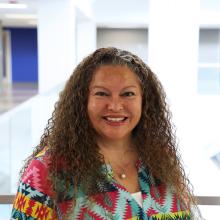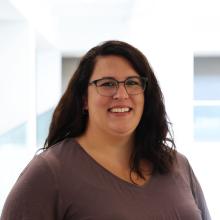Faculty


Staff

First, it will help you figure out what life is about. How can you be successful if you do not understand how to live well?
Second, it helps you figure out who you are. How can you be successful if you do not know who you are?
Third, it helps you get smarter. Smart people tend to be successful and philosophy students are among the smartest.
Fourth, it can help you live a more fulfilled life. Why? Because people who are committed to figuring life out, finding themselves, and lifelong learning, tend to be more content with their life and with their relationships.

Scholars Café: This is a biweekly gathering where students and professors take their “student” and “professor” hats off and enjoy a “meeting of the minds” as fellow scholars. In addition, bubble pipes are required for membership. In addition, members must blow out of their bubble pipes after they share an opinion or say anything – usually a fun time, filled with good discussion.
Socrates Café: A weekly 30-minute gathering that discusses the most important things in life according to the father of philosophy, Socrates.
C. S. Lewis & Friends: A gathering of C. S. Lewis fans. Students are free to share a reading from Lewis or someone that influenced him (J. R. R. Tolkien, G. K. Chesterton, Charles Williams, Dorothy Sayers, George MacDonald, and others). In addition, we usually work through 2-5 pages of a Lewis book each week. These books count toward the course on the Life and Writings of C. S. Lewis, taught by Mr. Rothell, associate professor of philosophy.
Skeptics Anonymous: A weekly 30-minute gathering that discusses issues that can cause skepticism toward religion. Skeptics anonymous provides an opportunity for skeptics of religion or non-religion to voice their opinion in an open atmosphere.
According to the Bureau of Labor Statistics, overall employment of postsecondary teachers is projected to grow 8 percent from 2022 to 2032, faster than the average for all occupations.
About 118,800 openings for postsecondary teachers are projected each year, on average, over the decade. Many of those openings are expected to result from the need to replace workers who transfer to different occupations or exit the labor force, such as to retire.
Projected employment of postsecondary teachers varies by occupation (see table). Both part-time and full-time postsecondary teachers are included in these projections.
The number of people attending postsecondary institutions is expected to grow over the projections decade. Students will continue to seek higher education to gain the knowledge and skills necessary to meet their career goals. As more people enter colleges and universities, more postsecondary teachers will be needed to serve these additional students. Colleges and universities are likely to hire more part-time teachers to meet this demand. In all disciplines, there is expected to be a limited number of full-time nontenure and full-time tenure positions.
A growing number of older people, who are more likely than young people to need medical care, will create increased demand for healthcare. More postsecondary teachers are expected to be needed to help educate workers who provide healthcare services.
However, despite expected increases in enrollment, employment growth in public colleges and universities will depend on state and local government budgets. If budgets for higher education are reduced, employment growth may be limited.
The U.S. Bureau of Labor Statistics lists the median annual wage for postsecondary teachers was $80,840 in May 2022. The median wage is the wage at which half the workers in an occupation earned more than that amount and half earned less. The lowest 10 percent earned less than $47,370, and the highest 10 percent earned more than $173,730.


